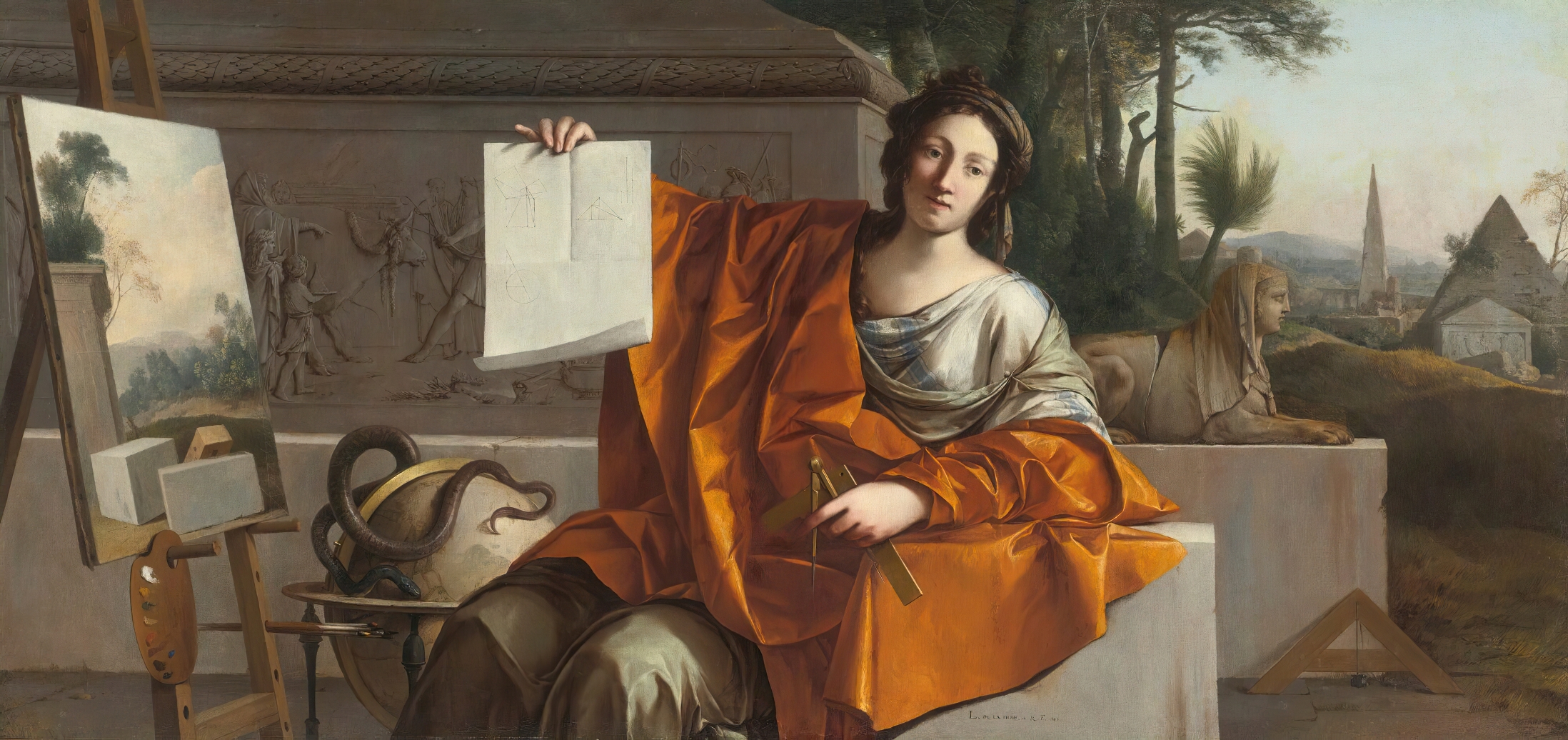Description
Allegory Of Geometry by Laurent de la Hyre printed on a Hoodie
La Hyre animated his serene paint surface with a composition organized around the dramatic sweep of the theorbo—a kind of lute—and the sophisticated rhythm of antique columns, tree trunk, and organ pipes across the background. The allegorical figure of Music tunes her instrument as a metaphor for harmony. The songbird represents a contrast between nature’s voice and the human voice ruled by musical theory and practice, indicated by the sheet music and instruments on the table. The French Royal Academy’s first historian described this work among representations of the seven Liberal Arts commissioned for the Parisian mansion of Gédéon Tallemant (1613–1668), a high-ranking administrator serving Louis XIV.
About the Hoodie
Modern fit
It provides a more tailored look than a regular fit
Comfortable
The fabric and fit of this item are extra comfy
Tear-away tag
Easily removable tear-away tag that allows you to add a custom inside label
Premium quality
The product is made from premium, high-quality materials
Classic unisex hoodie with a front pouch pocket and matching flat drawstrings. The 100% cotton exterior makes this hoodie soft to the touch.
- 65% ring-spun cotton, 35% polyester
- Charcoal Heather is 60% ring-spun cotton, 40% polyester
- Carbon Grey is 55% ring-spun cotton, 45% polyester
- 100% cotton face
- Fabric weight: 8.5 oz./yd.² (288.2 g/m²)
- Front pouch pocket
- Self-fabric patch on the back
- Matching flat drawstrings
- 3-panel hood
- Tear-away tag
Laurent de la Hyre (1606-1656)
Laurent de La Hyre was a French Baroque painter, born in Paris. He was a leading exponent of the neoclassical style of Parisian Atticism.
La Hyre was greatly influenced by the work of Italian artists who came to Paris. He became a pupil of Georges Lallemand and studied the works of Primaticcio at Fontainebleau, but never visited Italy. La Hyre’s captivating use of color and delicately posed figures are a trademark of his early, painteresque style. He was an innovative artist who used his superior skills as a storyteller to portray rarely depicted subjects. La Hyre is associated with the transitional period before the introduction of the French Baroque by Simon Vouet.
His picture of Pope Nicholas V opening the crypt in which he discovers the corpse of St. Francis of Assisi standing (located at the Louvre) was executed in 1630 for the Capuchin friars of the Marais; its gravity and sobriety seems to have been influential for the next generation of French painters, particularly Eustache Le Sueur. The Louvre contains eight other works, and paintings by La Hyre are in the museums of Strasburg, Rouen and Le Mans.
His drawings, of which the British Museum possesses a fine example, Presentation of the Virgin in the Temple, are treated as seriously as his paintings, and sometimes show simplicity and dignity of effect. The example of the Capuchins, for whom he executed several other works in Paris, Rouen and Fécamp, was followed by the goldsmith’s company, for whom he produced in 1635 St. Peter healing the Sick (Louvre) and the Conversion of St Paul in 1637.
In 1648, La Hyre was one of the founders of the French Royal Academy of Painting and Sculpture and was elected as one of the original twelve elders in charge of its running.
Richelieu called La Hyre to the Palais Royal; Pierre Séguier, Gédéon Tallemant des Réaux and many others entrusted him with important works of decoration; for the Gobelins he designed a series of large compositions. La Hyre painted also a great number of portraits, and in 1654 united in one work for the town-hall of Paris those of the principal dignitaries of the municipality. His students included François Chauveau.






Reviews
There are no reviews yet.